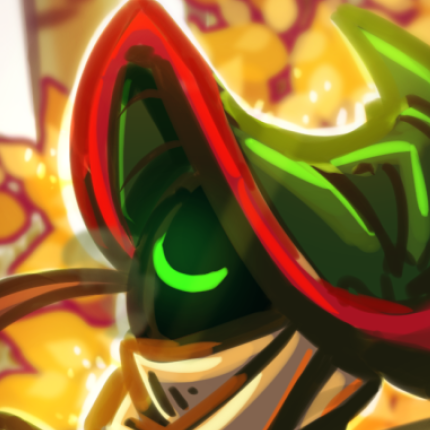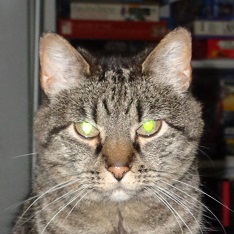Island New Year Celebrations
I would like to express my gratitude to everyone who answered my query and shared their stories. I wish I could have included everything you told me about.
Elan
Origins
The practice of numbering years goes back at least as far as the first half of the Oceanic Era. The earliest Tiderider log that references a specific year is dated 5056 Oce. The use of such a large number at the beginning of a single family's records suggests a well-established system already in place. In the era change from the Oceanic to the Volcanic, the point of turning the number remained the same: at dawn on the increasing equinox. This is also a custom without any recorded beginning, but is consistent across all records during the first hundred and fifty years of the Volcanic Era whether they are designated Oce or Vol. Tiderider logs are economical, limited to sailing conditions and crew statistics, and rarely mention any rituals or ceremonies except those related to Ocean worship. Nor are there any documents from the atoll communities known to have survived the evacuations. Given the variety of celebrations held today, however, it seems reasonable to assume that the tradition of the new year as a holiday arose after the atoll refugees dispersed themselves around the Cluster Islands.Notable Examples, by Region
Please note: The following is a sample, not a comprehensive list of all traditions everywhere in and around the Cluster Islands. Just because a tradition is associated with a particular island doesn't mean everyone who lives there (or used to) will follow it.Cluster Islands
Mraydor
The famously hardworking residents of Mraydor are as enthusiastic in their celebrations as in their island's industries. For the entire day, all city streets are closed to vehicle traffic. Both citizens and businesses set out racks of festival food in front of their homes or stores, and people wander through the city sampling what others have to offer. Music plays everywhere, either from recordings or with real instruments. Small groups constantly form to sing and dance to favorite songs. But as soon as the sun sets, all the revelry stops. The rest of the evening is taken up in cleaning the debris from the day's celebration, and by the next day there is no sign that a festival took place."I think what made it such a popular holiday is that Kezlaf never went. He always stayed inside the palace for the entire New Year's Day, and wouldn't let us go outside either. I know he hated the sensation the chaos and crowds gave him, but he never said so. He didn't want anyone to figure out he didn't really have the power to make them all stop."— Kezalf, formerly Wringer One
Zaiyev
On Zaiyev, new year celebrations had a more relaxed feel and were far less intensely focused on the day itself. Preparations would begin months in advance as residents hurried to repay debts, settle arguments, finish mending, clean thoroughly, and complete whatever tasks had been set for them. The goal was to have all obligations met by the last day of the old year, so that the first day of the new year would be free of responsibility. Zaiyeve would then spend that day in any activities that pleased them.Galtern
"When I was stationed on Tokled I went out every clear night I could to look at the stars. It helped me feel closer to home, and a little festive even when things were at their most tense."In most urban areas of Galtern, about a third of the population sleeps during the day and wakes at night, interacting with the other two-thirds only during the hours of dawn and dusk. Strictly enforced curfew laws prohibit the day and night shifts from meeting at any other time, except at the new year. For a full twenty-hour period known as the "cross-year" everything in the cities (except for emergency services) shuts down. Both shifts are encouraged to go outdoors to enjoy the last night of the old year and the first day of the new. Day citizens are treated to a rare sight of the full night sky, and night citizens get to admire the island's natural wonders in broad daylight.— Heiras, Galternene medic
Pudarog
A tradition that has become popular on many islands is the Pudarogi token exchange. Late in the year Pudarogi make around ten to twenty small friendship tokens and give them to each other on the day of the new year. They usually include the name of the giver as a remembrance, and may also have personal messages attached. The token can take on any form as long as it is smaller than the palm of a hand. Ribbon birds and feather flowers are the most commonly seen. Most Pudarogi now live elsewhere in the islands, but the tradition survives wherever they do, and in many places has taken root."My cousin and his friends still do this, even though they live at sea now. They save strips of torn sail and rope fray and other scraps all year and make their tokens from those. After the exchange, they tie the tokens to the mast and let them fly in the wind."— Lysiddea
Other Islands
Aktergea
Aktergea, driven by the keetrock industry, has two distinct populations that look at the new year in different ways. The refinery on the dry side of the island is staffed by temporary workers serving three-month shifts. Because of the inherent occupational health risks, workers are not allowed to take more than three shifts in succession. Longstanding traditions don't form in such a variable population, so holidays observances are simple. At the new year, the refinery closes for two days: the first for the workers to spend in personal celebrations, and the second for them to spend in recovery."He didn't like me to interact with the refinery workers, but as his junior assistant I couldn't help meeting some of them. The second day of the year was always busy with injuries from whatever they had been doing the day before. And while he was working on them, they'd tell me stories of how they got this cut or that bruise. I don't know how many were true, but they seemed to count the damage as worth it."The new year celebrated by Aktergea's lumber miners doesn't coincide with the calendar date. They live in self-governed camps that regularly move from one cut to another and budget very carefully, giving them no room for surplus to take holidays with. When each camp finishes all its cuts, the miners go to the town of Offcut at the base of the river and take two months of rest that are not at all restful. The day they arrive in Offcut is the day each camp considers the beginning of its year.— Sage Alcendis Varenonde, formerly Dancinglight
Ralcondray
At this time, Ralcondray is a place of changing traditions. As a slowly growing colony in unexplored territory, out of contact with any other island, they have historically put more importance on vigilance than celebration. But with communication reestablished, Ralcondrians are finally beginning to feel enough security to hold regular communal holidays--even if they are working ones. Their new year observance, barely ten years old, is just beginning to settle into a pattern. They travel the colony's first road to the bay where the original fleet landed and raise another building in what will be the port that the founders always had in mind would be there."The older folks don't see the point of it, and I guess I can understand why. All it is to them is a reminder of how hard the past was. For me it's different, because my whole life I've been able to leave Ralcondray. Going to the bay, I can look out over the water and imagine all the things I might be able to do when I'm an adult."— Vanich
Eihlari
There is no common Eihlarian celebration of the new year. Every family has its own particular tradition, and it would be impossible to represent them all here."On New Year's Day, my clan puts the children in charge. The rule is that you have to obey orders from whoever is younger than you--although if it's something dangerous, you're allowed to have a temper fit and refuse. I remember I would always eat too much and be miserable the next day, but that never stopped me from looking forward to it again the next year."My clan, Straibala, celebrates change and growth. We measure children and make an image of them all in a line by height. Those of us who have reached full size treat the day as an opportunity to strive for more personal changes. We write out our hopes and wishes for ourselves on little pieces of paper, folding them (sometimes sculpting them) in such a way that their contents can't be read without unfolding them. We put them into one of two new-year boxes and seal it, then open the other box to reclaim our papers from the previous year. Though anyone may talk about theirs if they wish, these are treated as deeply personal and private. If someone has died during the past year, her paper is buried unopened.— Nkeba Rruend, Dancinglight
Remove these ads. Join the Worldbuilders Guild




A very interesting journey through many regions and their way of celebrating the new year. Honestly, having variations in customs for the same holidays give so much life to a world! What I found most intriguing was the situation in Galtern. I bet people are in awe during New Years seening night or day for the first and only time in year. I'd love to know why this happens. Good job!
Come visit my world of Kena'an for tales of fantasy and magic!
Or, if you want something darker, Crux Umbra awaits.
Thank you! It feels alive to me, as if these traditions were always there and I just hadn't looked closely at them yet. The story behind Galtern is that their biggest city started out as a cluster of refugee camps, so pockets of overcrowding have been their norm from the beginning. The night and day system was their most successful way of addressing it, but it had a rocky start. (Full story here.) The curfew laws gave each shift enough of a sense of security in their own hours that they didn't feel threatened by each other anymore. I didn't mean to imply that they never get to see the sky during their off-hours, so I'll rephrase that part. Bedrooms have windows and skylights, so that the night shift can get their sunlight while they sleep and the day shift can enjoy the stars if they're up in the middle of the night. What they don't get except during the cross-year is the falling-into-the-cosmos feeling of lying on your back under the full sky.